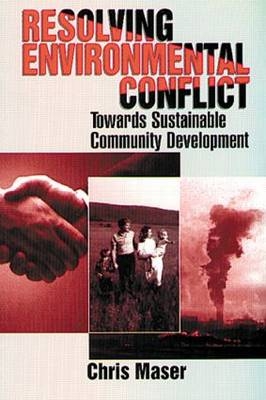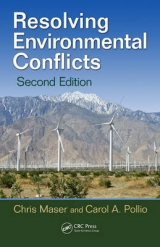
Resolving Environmental Conflict Towards Sustainable Community Development
St Lucie Press (Verlag)
978-1-57444-007-2 (ISBN)
- Titel erscheint in neuer Auflage
- Artikel merken
Resolving Environmental Conflict explains the transformative approach toward facilitation. It shows how to help parties empower themselves to define the issues and decide the settlement on their own terms and on their own time through better understanding of one another's perspectives.
The transformative approach allows a conflict's outcome to be decided solely by the participants even though resolution may not take place for some months after facilitation is complete. Inherent in the solution is a shared vision for the community without which sustainability is not possible.
Beyond shared vision, this book examines notions of development, sustainability, and community and the synergism of ecology, culture and economic needs that promote a healthy environment enriching the lives of all its inhabitants.
PART 1. RESOLVING DESTRUCTIVE ENVIRONMENTAL CONFLICT
Chapter 1. Approaches to Facilitation
Facilitation at the Crossroad
A Brief Look at the Facilitation I Practice
Chapter 2. Conflict is a Choice
What is a Right?
The Equality of Differences
Environmental Justice is Predicated on Human Equality
Perceived Resource Scarcity Accentuates Destructive Environmental Conflict
Resource Overexploitation, A Matter of Perceived Loss
Destructive Conflict is a Mistake
Destructive Conflict is Usually Based on the Misjudgment of Appearances
Chapter 3. Environmental Principles-The Need to Know and the Fear of Knowing
All Resources are Interconnected, Interactive, and Ultimately Finite
Nature Keeps its Own Scorecard
Nature is Governed by Impartial Laws
Destructive Conflict Over a Given Resource Lies in Its Perceived Value
Change-The Dynamic Constant
Chapter 4. The Human Equation
A Child's Gift
We Take Our Families with Us
Dysfunctional Family Dynamics Lead to Ongoing Destructive Conflict
Homeostasis is Designed to Hide Dysfunction
Boundaries, The Silent Language
Coping Mechanisms, Unconscious Thoughts that Manifest asRecognizable Behaviors
The Capacity for Rational Thought
Everyone is Right From His or Her Point of View
Acceptance of Circumstances Offers the Choices of What Might Be
Chapter 5. Communication, the Interpersonal Element
Language as a Tool
The Use of Silence in Communication
The Need to Be Heard
The Basic Elements of Communication
Communication Barriers
Inability to Transfer Experiences from One Situation to Another
Chapter 6. The Process is the Decision
Faith in the Process is Belief in the Outcome
The Primacy of Process
Perception is Truth
Reframing the Issue
Chapter 7. Conflict is a Learning Partnership
I Am at All Times a Guest and a Leader Simultaneously
The Continual Learning Curve
Assisting Parties in Clarifying and Resolving Their Conflict
Chapter 8. Practicing Transformative Facilitation
Compromise and the Point of Balance
A Curriculum of Compassion and Justice
Facilitation as a Gift is Free, But as a Trade Has a Cost
Chapter 9. Resolution-Destructive Conflict Brought to a Shared Vision
Who are we as a Culture?
What Legacy Do We Want to Leave our Children?
Vision, Goals, and Objectives
PART II. BEYOND DESTRUCTIVE CONFLICT, SOCIAL/ENVIRONMENTAL SUSTAINABILITY
Chapter 10. Sustainable Development
Sustainable Development within the Context of our World View
Sustainable Development, A Conscious Process of Self-Determination and Social Evolution
At What Scale is Sustainable Development Possible?
Chapter 11. Local Community Development
Is Local Community the Appropriate Scale for Sustainable Development?
Understanding Local Community Development
Sustainable Community Development
Chapter 12. Modifying Our Belief Systems Regarding Change
Index
| Erscheint lt. Verlag | 21.11.1995 |
|---|---|
| Reihe/Serie | Social Environmental Sustainability |
| Verlagsort | London |
| Sprache | englisch |
| Maße | 152 x 229 mm |
| Gewicht | 340 g |
| Themenwelt | Naturwissenschaften ► Biologie ► Ökologie / Naturschutz |
| ISBN-10 | 1-57444-007-1 / 1574440071 |
| ISBN-13 | 978-1-57444-007-2 / 9781574440072 |
| Zustand | Neuware |
| Haben Sie eine Frage zum Produkt? |
aus dem Bereich



